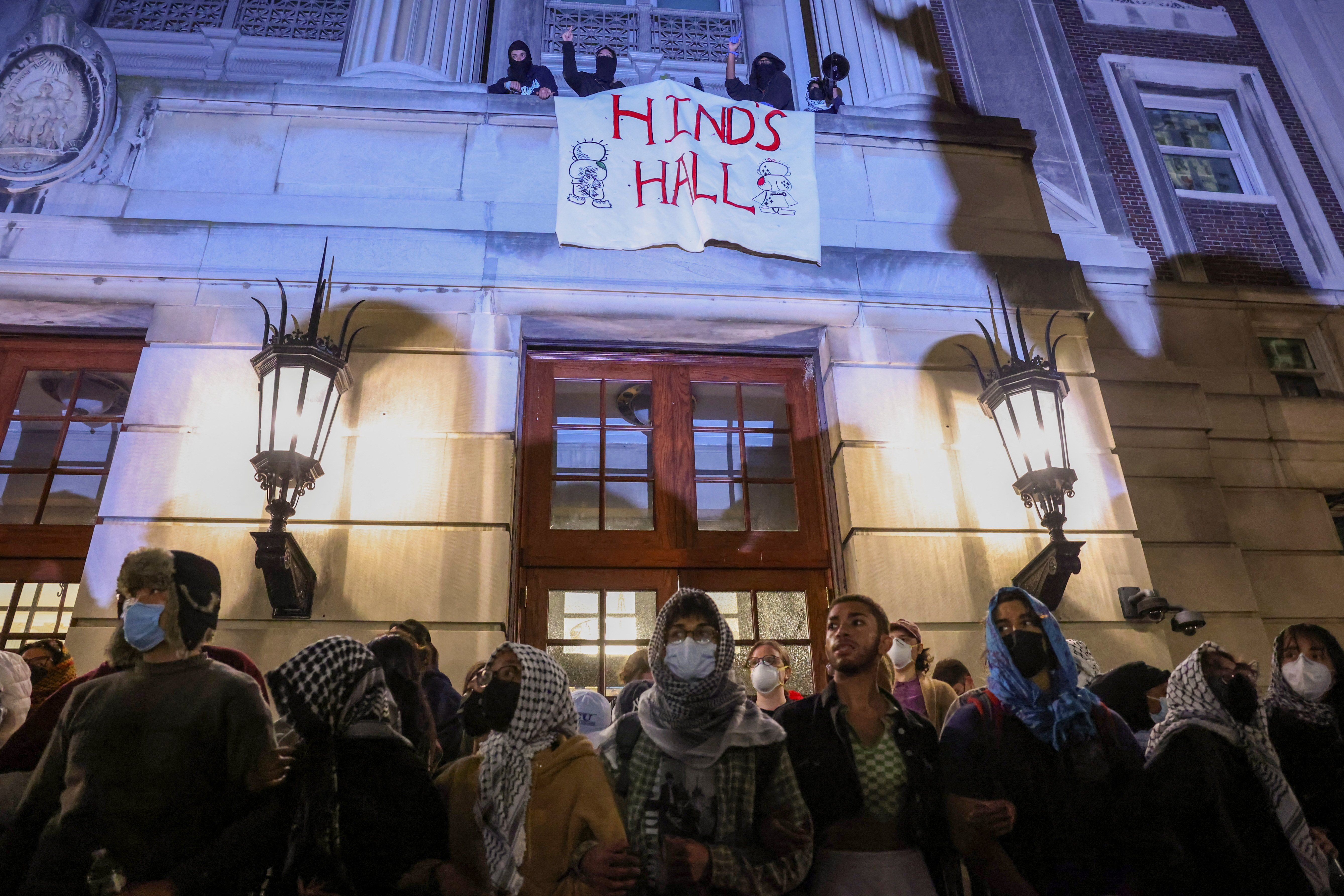Pro-Palestine protests on US college campuses continue to make headlines. At Columbia University, where students have been camped out on the university lawns for over a week demanding the school divest from Israel, students broke into and occupied a building on campus last night -- the very same hall that was occupied during the Vietnam War protests in 1968. They have also spread their encampment onto a second lawn on campus.
Around 12:30 a.m., protesters broke the windows and gained access to Hamilton Hall. They immediately began blocking both sides of the doors with hundreds of pounds of furniture, rope, and zip ties. A banner was hung out the front window renaming the building “Hind's Hall,” referring to Hind Rajab, a six-year-old Palestinian who was killed by the Israeli military in Gaza on Jan. 29. As they tried to enter the building, two students attempted to block their way, shouting, “You don’t have the right to tear down our university.” NYPD remained outside the gates and has not been given permission to enter campus.
Meanwhile, at the University of Texas at Austin, at least 40 more students were arrested on Monday to the applause of Gov. Greg Abbott. The move came after 57 people were arrested for participating in a student walkout there last week.
The Gaza war has also catalyzed demonstrations in the surrounding region itself — and with the memory of the Arab Spring still fresh on their minds, leaders are responding with repressive tactics.
The Egyptian government has not taken kindly to pro-Palestinian protests that have also aimed at Cairo’s diplomatic ties with Israel. In early April, Egyptian authorities arrested at least 10 people at a protest accusing Cairo of fueling the war in Gaza and calling for the government to expel the Israeli ambassador.
Authorities in Morocco and Jordan have also arrested and prosecuted people who’ve criticized their government’s ties to Israel. Jordanian authorities have reportedly arrested roughly 1,500 over such demonstrations since October.
The Palestinian cause has been a rallying cry in the Arab world for decades. And without a cease-fire in Gaza, the war seems poised to continue stoking public outrage across the region.
That said, a Hamas delegation arrived in Cairo on Monday for further truce talks facilitated by international negotiators. Meanwhile, US Secretary of State Antony Blinken on Monday urged the militant group to accept an “extraordinarily generous” new proposal from Israel that lowered the number of hostages it wants to see released for a phased cease-fire to begin.
